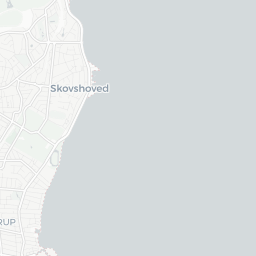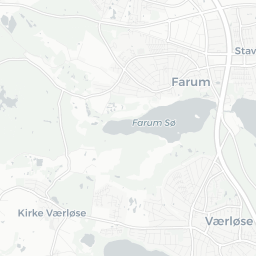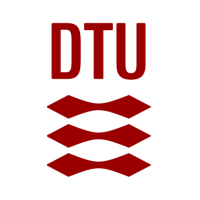PhD scholarship in Experimental Development of Thin-Film Phosphosulfide Materials for Solar Cells - DTU Nanolab
Danmarks Tekniske Universitet (DTU)
Do you want to develop solar cell materials that have never been synthesized before? Then apply for this PhD project focused on new thin-film phosphosulfide semiconductors to be grown with a world-unique suite of deposition setups designed for exploratory materials research.
This PhD scholarship is part of the Inorganic Phosphosulfides for Optoelectronics project funded by the VILLUM Foundation. Our goal is to address a crucial scientific and technological challenge: How can we find the absolute best material for a desired application out of the enormous space of all possible materials, including the ones we haven’t yet discovered (trillions at least)?
We will approach this question by working on a smaller-scale case study where we limit ourselves to one intriguing class of materials (phosphosulfides) and one important application (solar cells). Our team’s task then becomes: among all possible phosphosulfides, which one will convert light most efficiently into electricity?
You will tackle this problem from an experimental angle. Phosphosulfide compounds are essentially unexplored in the thin-film form that is relevant for solar cells. You will have access to a new world-unique suite of thin-film processing setups highly customized for the inclusion of the “difficult” elements phosphorus and sulfur. The setups are glovebox-integrated and compatible with high-throughput deposition of combinatorial thin-film libraries with different elemental compositions in one process run.
Responsibilities and qualifications
You will be responsible for experimental work and related data infrastructure development as part of a diverse team of materials scientists, chemists, and physicists working on either experiment or computation. You will be supervised by Associate Prof. Andrea Crovetto and Prof. Eugen Stamate.
Your background could be Materials Science, Physics (emphasis on solid state physics is a plus), Chemistry (emphasis on inorganic/solid state chemistry is a plus), or related Engineering disciplines. Most importantly, you should be motivated to learn new things and push the boundaries of science.
Your tasks:
- Synthesize various phosphosulfide materials in thin-film form, using a custom suite of high-throughput deposition tools. The available techniques include reactive sputtering, evaporation, chemical vapor deposition, and reactive annealing.
- Measure the chemical, physical, and optoelectronic properties of phosphosulfides using state-of-the-art characterization tools at DTU Nanolab. Available techniques include x-ray diffraction, x-ray photoemission spectroscopy, electron microscopy, spectroscopic ellipsometry, photoluminescence spectroscopy and many others.
- Expand our current data infrastructure capabilities for batch analysis, visualization, and management of high-throughput experimental data based on the open-source NOMAD database model (https://nomad-lab.eu/nomad-lab/)
- Exchange and analyze your data with other team members who are tackling the problem from other perspectives (e.g., by simulation, data mining, artificial intelligence).
- Fabricate simple solar cell prototypes using the most promising phosphosulfides you discover, and measure their efficiency and other performance indicators.
- Supervise BSc. and MSc. students in smaller projects related to your PhD work.
We expect the following from you:
- Some experience with vacuum-based thin-film deposition
- Some experience with characterization techniques and analysis for thin-film materials (see examples in list above)
- Some experience with coding (preferably python)
- Ability to work both individually and as part of a team
- Motivation to follow research tasks to completion and to summarize research outcomes in several scientific articles during your PhD
You must have a two-year master's degree (120 ECTS points) or a similar degree with an academic level equivalent to a two-year master's degree.
Approval and Enrolment
The scholarship for the PhD degree is subject to academic approval, and the candidate will be enrolled in one of the general degree programmes at DTU. For information about our enrolment requirements and the general planning of the PhD study programme, please see DTU's rules for the PhD education.
Assessment
The assessment of the applicants will be made by Associate Professor Andrea Crovetto and Professor Eugen Stamate (DTU Nanolab).
We offer
DTU is a leading technical university globally recognized for the excellence of its research, education, innovation and scientific advice. We offer a rewarding and challenging job in an international environment. We strive for academic excellence in an environment characterized by collegial respect and academic freedom tempered by responsibility.
Salary and appointment terms
The appointment will be based on the collective agreement with the Danish Confederation of Professional Associations. The allowance will be agreed upon with the relevant union.
The period of employment is 3 years. The tentative start date is 1 September 2025 (earlier or later dates may be possible upon mutual agreement). The position is a full-time position.
You can read more about career paths at DTU here.
Further information
Further information may be obtained from Associate Professor Andrea Crovetto (DTU Nanolab), email: ancro@dtu.dk, phone +45 8191 5317.
You can read more about DTU Nanolab at www.nanolab.dtu.dk.
If you are applying from abroad, you may find useful information on working in Denmark and at DTU at DTU – Moving to Denmark. Furthermore, you have the option of joining our monthly free seminar “PhD relocation to Denmark and startup “Zoom” seminar” for all questions regarding the practical matters of moving to Denmark and working as a PhD at DTU.
Application procedure
Your complete online application must be submitted no later than 11 April 2025 (23:59 Danish time). Applications must be submitted as one PDF file containing all materials to be given consideration. To apply, please open the link "Apply now", fill out the online application form, and attach all your materials in English in one PDF file. The file must include:
- A letter motivating the application (cover letter). Please name one (or more) phosphosulfide material you think is worth investigating for this project, and state why.
- Curriculum vitae
- Grade transcripts and BSc/MSc diploma (in English) including official description of grading scale
You may apply prior to obtaining your master's degree but cannot begin before having received it.
Applications received after the deadline will not be considered.
All interested candidates irrespective of age, gender, disability, race, religion or ethnic background are encouraged to apply. As DTU works with research in critical technology, which is subject to special rules for security and export control, open-source background checks may be conducted on qualified candidates for the position.
DTU Nanolab is Denmark’s National Centre for Nanofabrication and Characterization, located at the Technical University of Denmark in Lyngby, 10 km north of Copenhagen. DTU Nanolab runs one of the most advanced university-owned open access nanofabrication cleanrooms as well as a wide variety of semiconductor characterization tools and a complementary suite of transmission and scanning electron microscopes. We conduct research in fabrication technologies and characterization methods, including novel materials and technology-near applications.
Technology for people
DTU develops technology for people. With our international elite research and study programmes, we are helping to create a better world and to solve the global challenges formulated in the UN’s 17 Sustainable Development Goals. Hans Christian Ørsted founded DTU in 1829 with a clear mission to develop and create value using science and engineering to benefit society. That mission lives on today. DTU has 13,500 students and 6,000 employees. We work in an international atmosphere and have an inclusive, evolving, and informal working environment. DTU has campuses in all parts of Denmark and in Greenland, and we collaborate with the best universities around the world.
Opslaget er indhentet automatisk fra virksomhedens jobsider og vises derfor kun som uddrag. Log ind for at se det fulde opslag eller gå videre til opslaget her:














